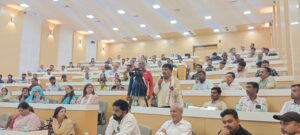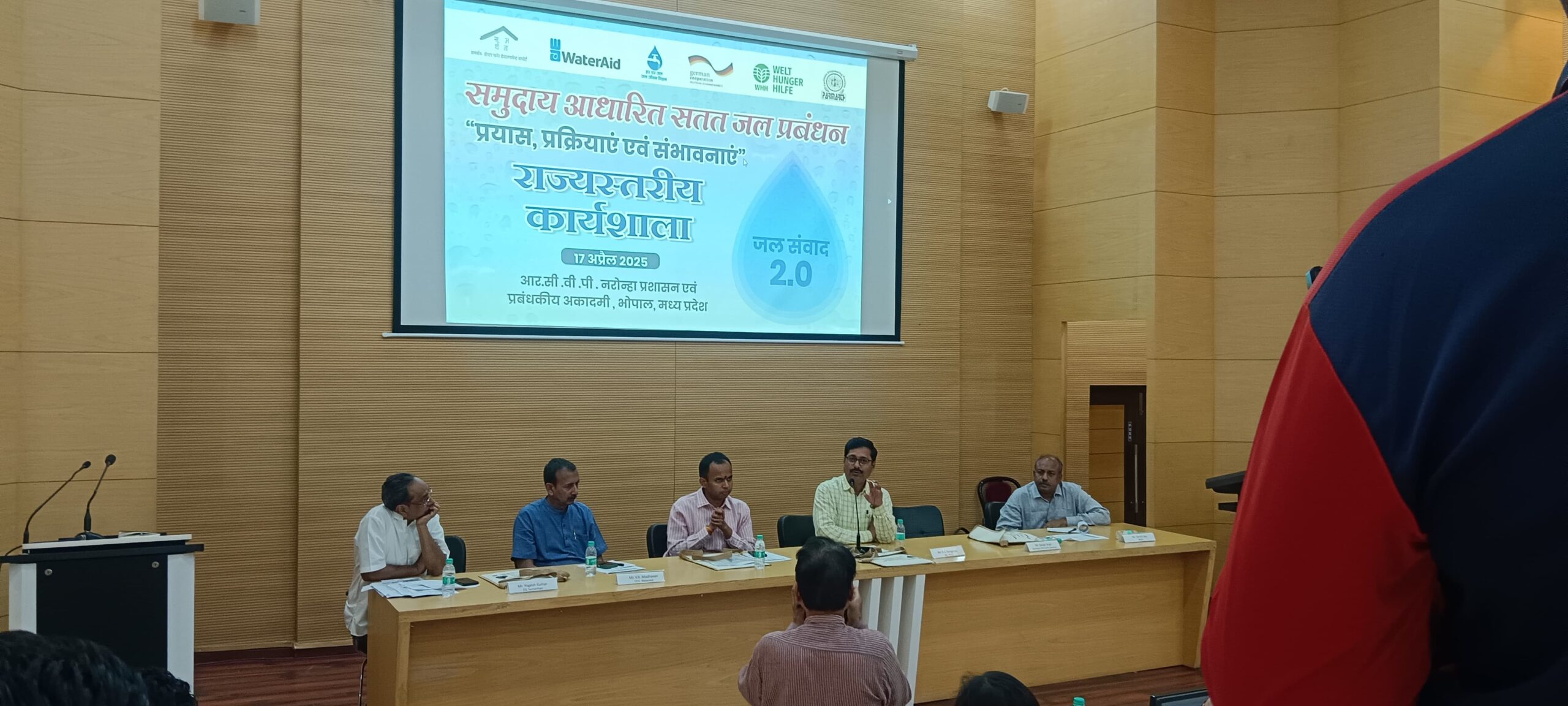CNN Central News & Network–ITDC India Epress/ITDC News Bhopal: A two-day state-level workshop concluded on Thursday at RCVP Noronha Academy of Administration in Bhopal, the capital of Madhya Pradesh. The objective of this workshop was to discuss challenges and potential solutions related to community-based sustainable water management, drinking water supply, and water conservation.
On the first day, Madhya Pradesh Chief Secretary Anurag Jain, Managing Director of Jal Nigam K.B.S. Chaudhary, and other senior officials participated. They discussed in detail the status, achievements, and necessary improvements of drinking water schemes being run under the Jal Jeevan Mission in the state.
The second day began with a welcome song performed by the “Jal Sahelis,” followed by a series of dialogue sessions. Representatives of social organizations, village panchayat secretaries, sarpanches, members of village drinking water and sanitation committees, Jal Sahelis, Jal Yodhas, and other grassroots workers from districts such as Chhatarpur, Niwari, Panna, Damoh, Dindori, and Mandla actively participated in the sessions.
On this occasion, Yogesh Kumar from Samarthan Organization anchored the event, while Dr. Sanjay Singh, Secretary of Parmarth Organization, emphasized the importance of sustainable water management. He highlighted the need to establish a Joint Monitoring Firm under Jal Jeevan Mission and share the Water Status Report at the state level.

K.K. Sonagaria from the PHED department mentioned that new policies would soon be implemented to strengthen the water supply system. He assured that ensuring tap water supply to every settlement in the state is the government’s top priority, and water distribution would be ensured on an equitable basis.
V.K. Madhavan, CEO of WaterAid India, shed light on important issues such as water quality, maintenance, and prioritization. He emphasized the crucial role of leadership development and active sanitation committees at the village level.
It was also highlighted during the workshop that in many places, village drinking water and sanitation committees are not very active. Even though sarpanches show interest, several water schemes are not operating smoothly due to technical complexities.
However, significant progress has been made in the drinking water sector over the past year. The goal is to improve all single-village schemes by June 2026. Additionally, efforts are underway to develop technical applications to ensure monitoring and transparency in water availability.
Representatives from the Jal Nigam, PHED department, social organizations, Jal Sahelis, Jal Yodhas, village panchayat secretaries, panchs, sarpanches, and members of drinking water and sanitation committees participated in the two-day workshop, sharing local issues and solutions.
#WaterManagement #SustainableDevelopment #BhopalWorkshop #CommunityEngagement #WaterConservation #UrbanSustainability #EnvironmentAwareness







